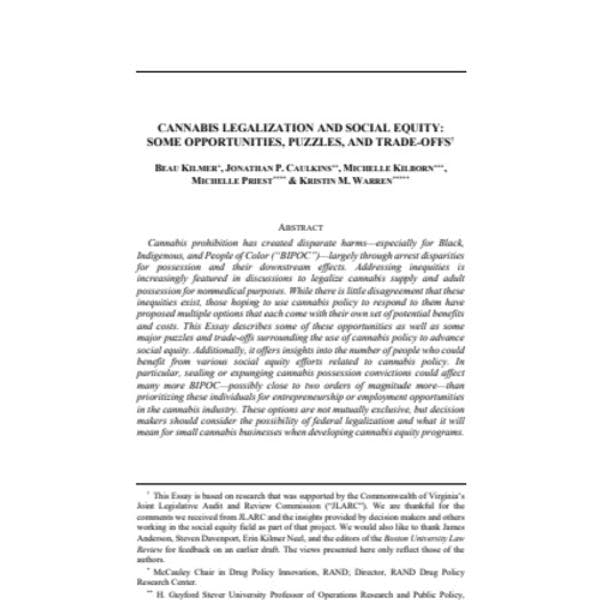La légalisation du cannabis et l’équité sociale : quelques opportunités, difficultés et concessions
Kilmer et al. discutent des inégalités liées à la prohibition du cannabis, en particulier dans le cadre de son application à l’encontre des communautés racialisées et réfléchissent aux possibilités de faire progresser l’équité sociale dans le domaine des politiques en matière de cannabis. Pour en savoir plus, en anglais, veuillez lire les informations ci-dessous.
By Beau Kilmer et al.
Cannabis prohibition has created disparate harms—especially for Black, Indigenous, and People of Color ("BIPOC")—largely through arrest disparities for possession and their downstream effects. Addressing inequities is increasingly featured in discussions to legalize cannabis supply and adult possession for nonmedical purposes. While there is little disagreement that these inequities exist, those hoping to use cannabis policy to respond to them have proposed multiple options that each come with their own set of potential benefits and costs. This Essay describes some of these opportunities as well as some major puzzles and trade-offs surrounding the use of cannabis policy to advance social equity. Additionally, it offers insights into the number of people who could benefit from various social equity efforts related to cannabis policy. In particular, sealing or expunging cannabis possession convictions could affect many more BIPOC—possibly close to two orders of magnitude more—than prioritizing these individuals for entrepreneurship or employment opportunities in the cannabis industry. These options are not mutually exclusive, but decision makers should consider the possibility of federal legalization and what it will mean for small cannabis businesses when developing cannabis equity programs.
